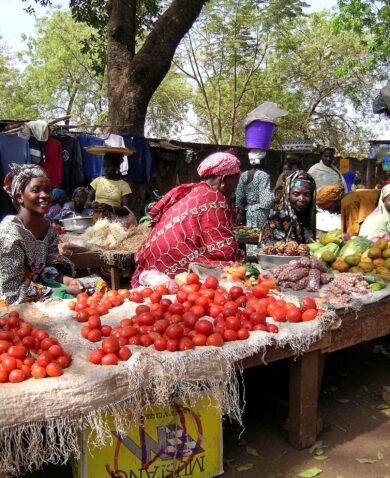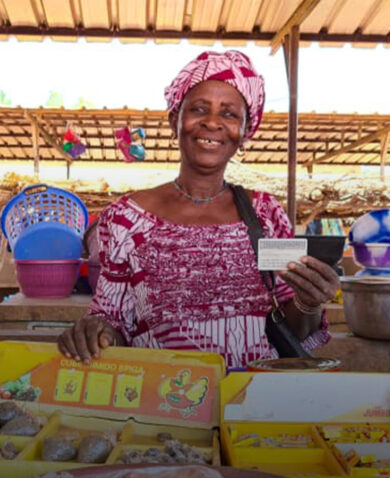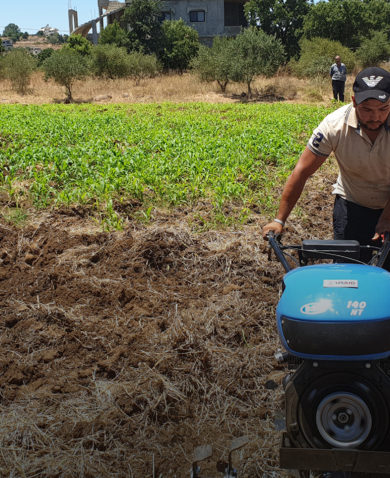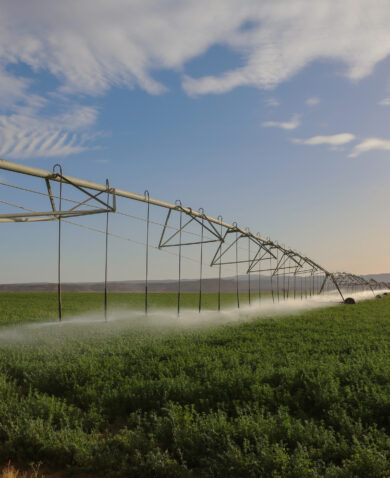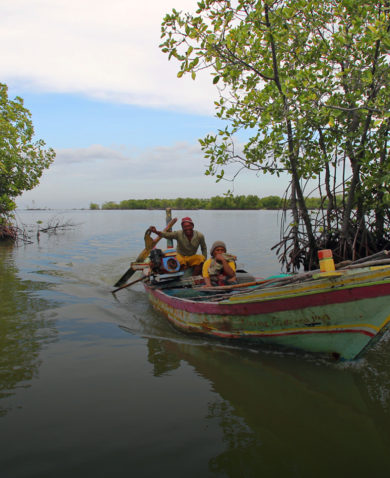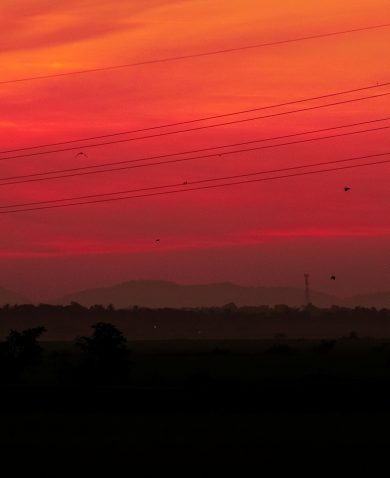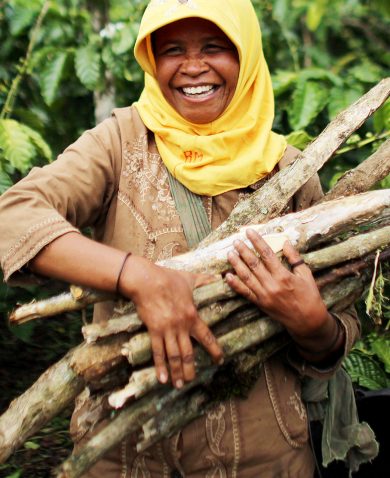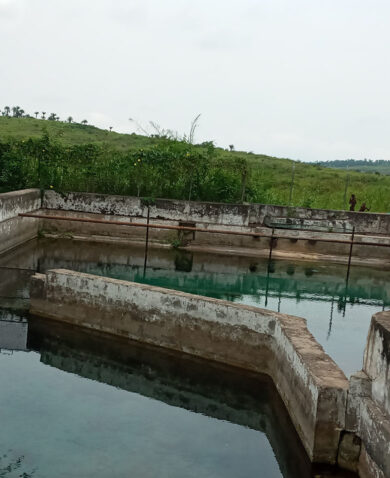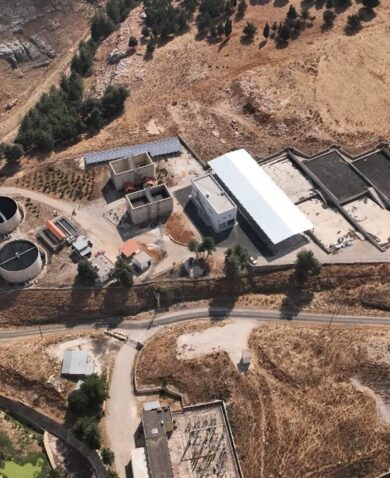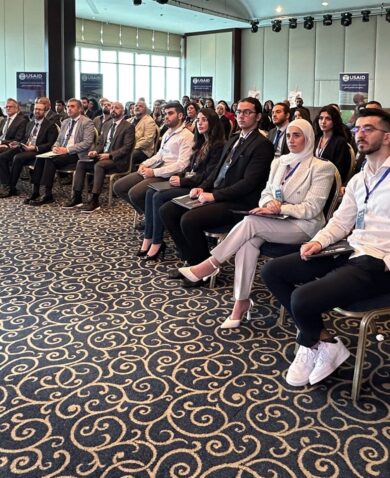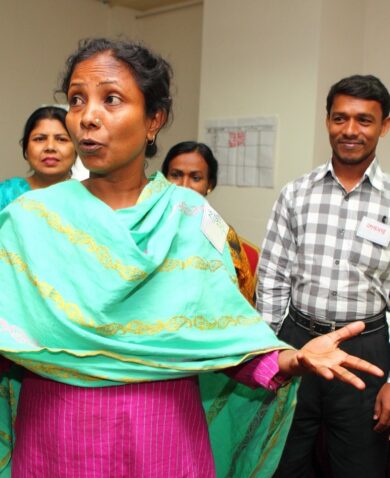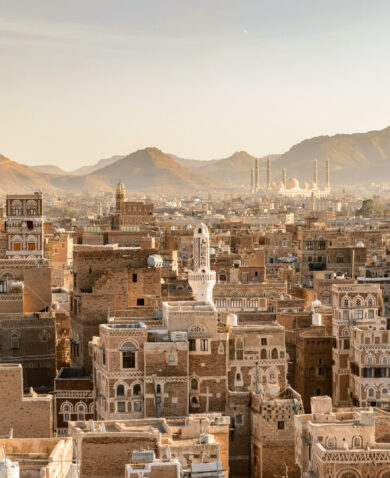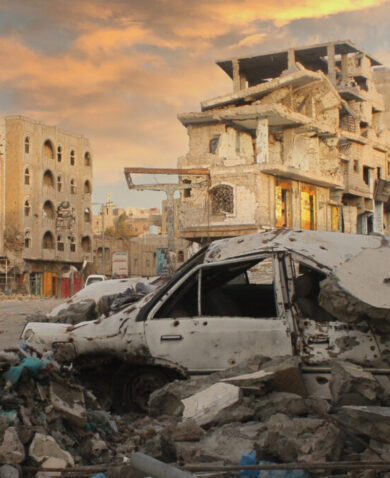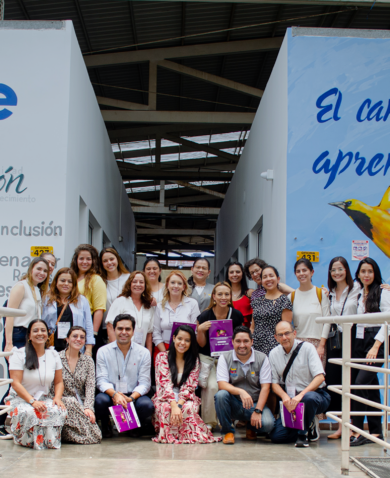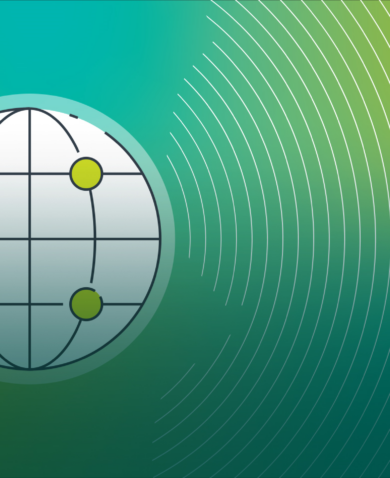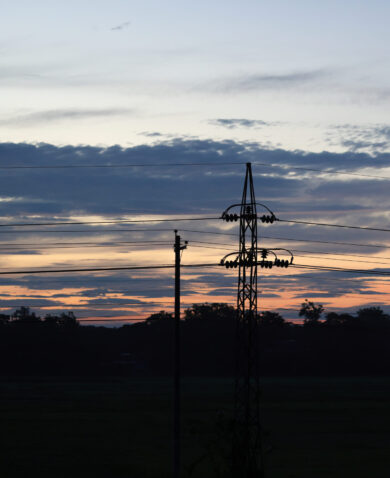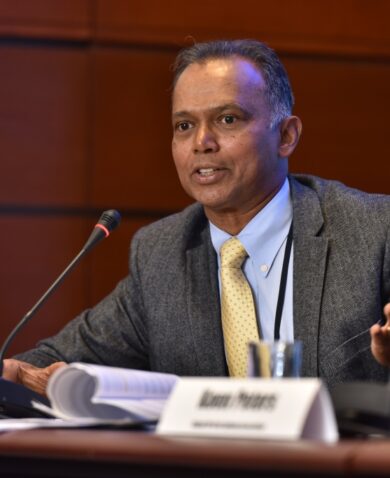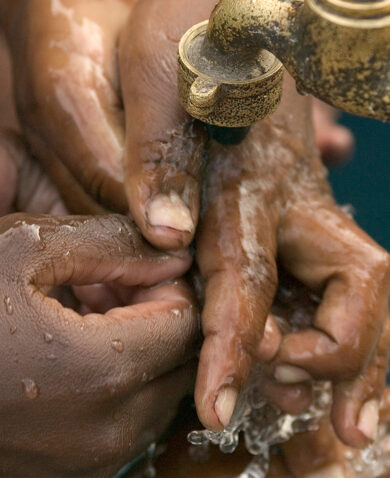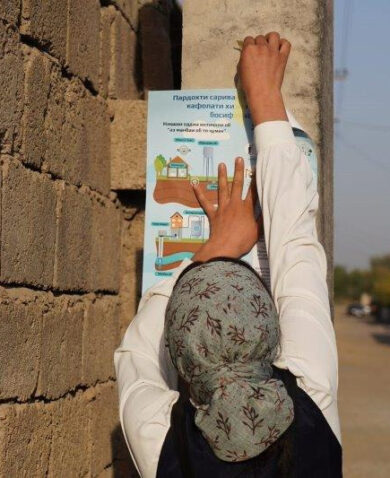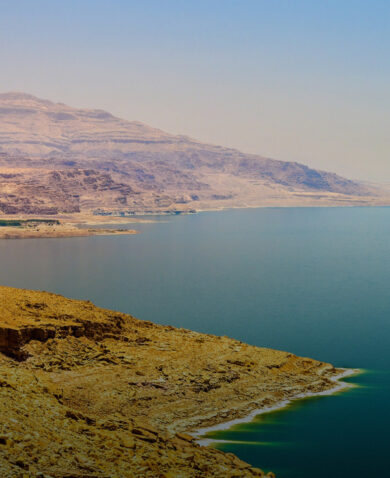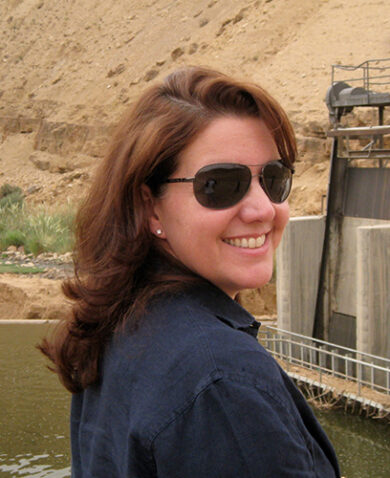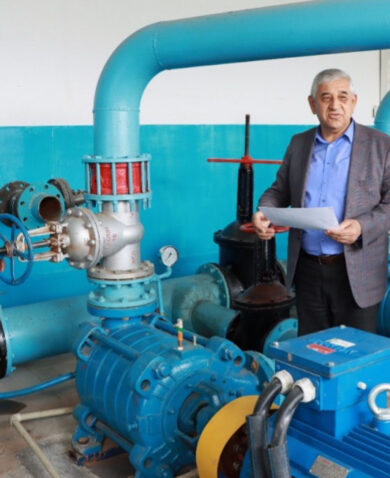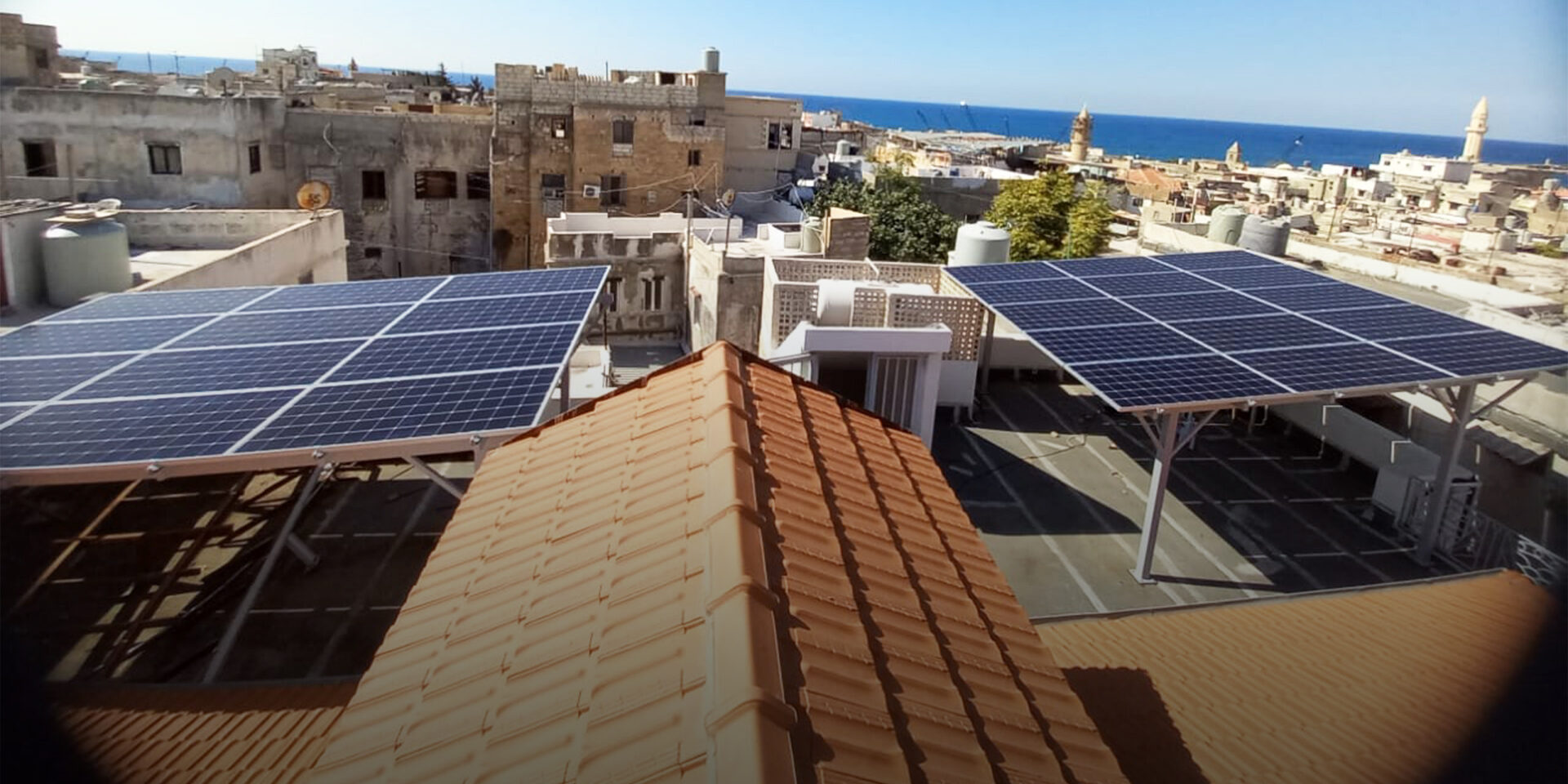
Illuminating Lebanon in Its Darkest Times .
July 6, 2022Conflict, displacement, pandemic, and economic crises have left most of Lebanon without consistent electricity or the ability to pump running water to communities. USAID Community Support Program and local municipalities turned to the power of the sun to address this challenge.
Water will soon flow again in Majdel Aanjar. And for that, local residents can thank an innovative new program that harnesses the power of the sun.
The small farming community in northeastern Lebanon’s Beqaa Valley — equidistant from Beirut and Damascus, the respective capitals of Lebanon and Syria — has suffered from a severe water shortage for 11 years. Not because of a drought, but because of a lack of sufficient electric power to pump the water to reach homes and farms.
This threatens the health and well-being of the town’s inhabitants as well as the high-yielding agricultural region’s fertility, rich as it is with flavorful apples, tomatoes, and grape vineyards. The desperate lack of water also bears potential for escalating violence between communities that have been thrust together as a result of regional conflicts.
Since Syria’s ongoing and devastating civil war started 11 years ago, Majdel Aanjar has more than doubled in size, adding 32,000 Syrian refugees to its pre-war population of 25,000 native Lebanese.
The absorption of so many refugees is just one factor that has hindered Majdel Aanjar’s ability to deliver essential services — such as electricity, water, and wastewater management — to its residents. And challenges like the water shortage, prolonged state-electricity outages (providing as little as two hours of power a day), and the exponential increase in population have led to a rise in sectarian tensions in Majdel Aaanjar, making it one of the most vulnerable towns in the Beqaa.
This pattern has recurred throughout Lebanon — particularly in the last half century — in which tensions have too often escalated into bloodshed. To help reduce such simmering discord, USAID launched the Community Support Program (CSP) in Lebanon. Implemented by Chemonics, CSP is an initiative specifically created to improve the delivery of electricity, water, waste-management and other services that can enhance economic opportunities, improve lives, and reduce the tensions that contribute to conflict and violence.
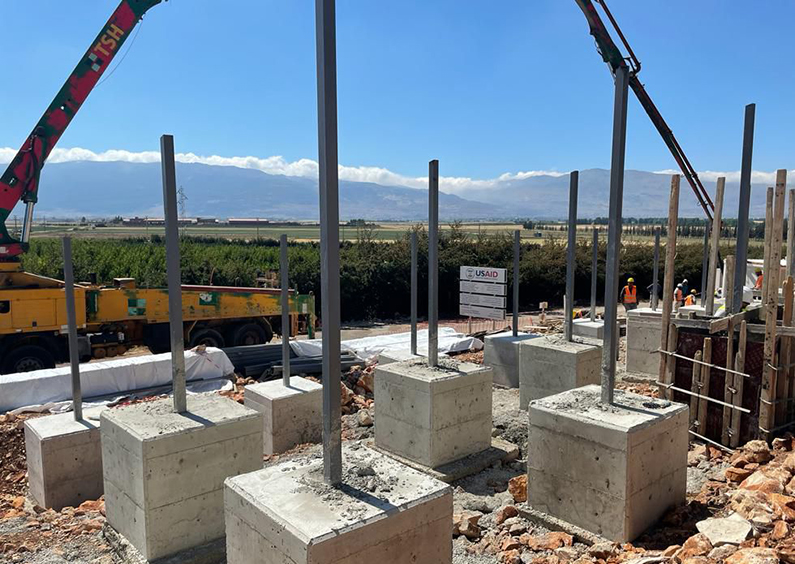
Through CSP, Chemonics has pioneered a program called Solar Solutions to Counter the Collapse of Essential Services. That program is overseeing a nationwide effort to harvest more affordable solar power in an attempt to normalize life in Lebanon. The Solar Solutions program targets providing more reliable electricity to 310,000 of Lebanon’s 6.8 million residents.
Two of these 22 solar-powered implementations are in Majdel Aanjar and El Fekehe, the latter another vulnerable municipality in Lebanon’s northeast corner, with 19,000 Lebanese and 7,000 Syrian refugees. Both activities are upgrading the water-pumping systems serving the towns, which will give both municipalities much-needed water, as well as, importantly, easing tensions.
“This project is addressing a crucial need,” stated Mahmoud Aajaj, a resident of Majdel Aanjar. “Without this intervention, we wouldn’t be able to provide a sustainable source of water to the village.”
“The CSP activity is an urgent priority,” added Bachir Khodor, Governor of Baalbek-Hermel, Lebanon’s northeasternmost governorate, in which sits the conflicted town of El Fekehe. “Residents of the area — both Lebanese and Syrian — are suffering from severe water shortages. The USAID-funded project will ensure enhanced access to water through renewable green energy.”
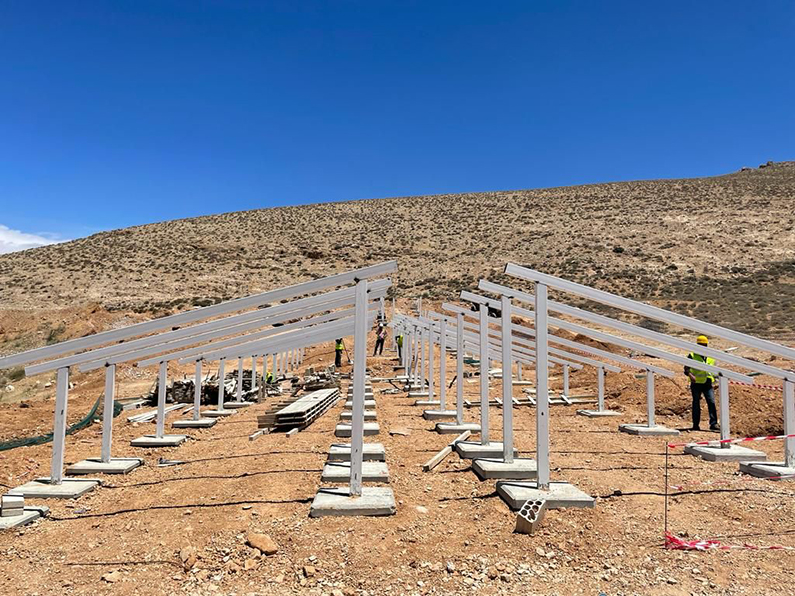
USAID conceived of the Community Support Program as a solution to ease some of Lebanon’s tensions, many rising from a confluence of crises. Those include, of course, the global pandemic (which hit Lebanon particularly hard — at one point, Lebanon was ranked third-worst in the world per-capita for COVID infections), but also an economic meltdown that has seen a near collapse of the Lebanese lira; a crippling fuel crisis — even more noteworthy because many Lebanese rely on fuel-powered generators as a workaround for the lack of state-sourced power; and the after-effects of absorbing 1 million refugees from neighboring Syria, who now comprise 20% of the national population of 6.8 million.
Those obstacles would pose an enormous challenge for any nation. But then additionally, a devastating port blast in Beirut two summers ago — which killed more than 200, injured more than 7,000, and left an estimated 300,000 homeless — delivered more heartbreak for Lebanon and further exacerbated adversities. In the wake of all of these grave challenges, residents have led ongoing protests and roadblocks to demonstrate their concern with the near collapse of essential services. Fuel shortages have led to numerous incidents of physical violence at gas stations, some of which have led to armed confrontations, and even death.
“Eleven years after the Syrian refugee crisis,” noted Bilal Al-Ayoubi, Director of the Community Support Program, “Lebanon has the highest per-capita number of refugees in the world — more than 1 million refugees, 20% of the country. That has led to tensions: competing over resources, a strain on services, electricity, water — as well as competition over jobs.”
CSP’s Solar Solutions effort, using the latest solar technologies to keep essential services running in several sectors, is currently implementing 22 solar-related interventions in Lebanon, including agriculture and water pumping (including an innovative solar-powered mobile welding machine, used to repair irrigation pipes that provide water to farmers fields), household energy, street lighting, and solid-waste management. The power newly available from this solar supply is a 300% increase in electricity, which in addition to helping keep Lebanon’s power supply available for some will also have a positive social impact, leading to expected reductions in local tensions by more than 60%.
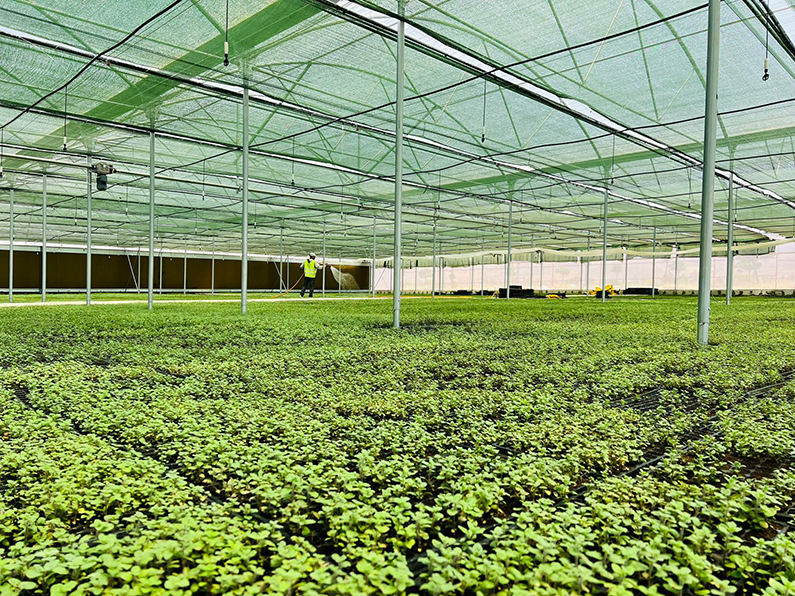
The solar-powered efforts are also significantly more affordable for a country where public sector capital has nearly disappeared.
“Prior to the economic crisis, most municipalities were operating at $200,000-$300,000 annual budgets,” said Al-Ayoubi. “After the economic crisis” — in which the Lebanese lira lost 90% of its value — “they had $10,000 budgets. So municipalities started looking for [more affordable] alternatives.”
And in that arena, the Solar Solutions program has been an early success; CSP’s improved services intend to benefit 271,969 people. Municipalities that currently operate a $10k annual budget will save up to 20% on that budget. As a result, it is not surprising that municipalities have increasingly clamored for more solar-powered stations to operate water wells and pumping stations. A total CSP investment of $3.6 million will save local partners $8.5 million in 10 years — while also crucially, and literally, helping residents in Lebanon to keep the lights on. That $8.5 million in savings can be invested by municipalities in other services.
Lebanon had not previously used solar solutions en masse. Historically fuel had not been a major concern for residents. Before the economic crisis gutted the national reserves, Lebanon used to subsidize fuel, so that residents paid the lowest amount per capita for fuel in the world. But solar power is one resource that is in plentiful supply in Lebanon. And in the Beqaa Valley, that means installing solar photovoltaic modules to power water pumps to get water to residents.
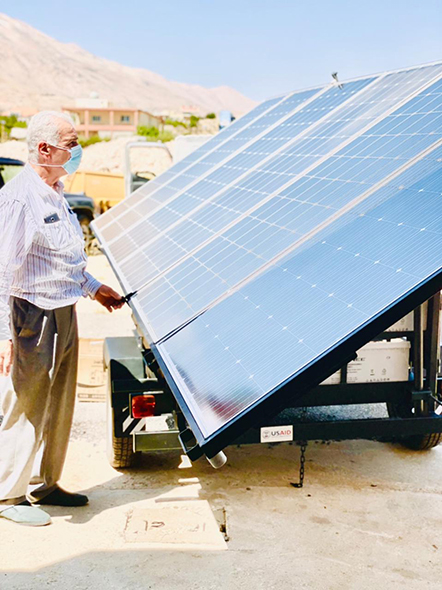
There have been technical and supply challenges for the program — working with local authorities to identify and secure land for the solar farm; sourcing solar panels and componentry in a country that imports almost everything — but the program itself has been enthusiastically endorsed by municipal officials and residents throughout the country, from the rural northeast to the coastal city of Saida, where a lack of electricity to provide street lighting has led to safety concerns.
“This project has led to an increase in foot traffic because of the safety the lighting provides,” said Saida Mayor Mohammad Sououde, referring to a street-lighting initiative in Old Saida, the historic section of Lebanon’s third-largest city. “That in turn is increasing commercial activity for the businesses in the old souk.”
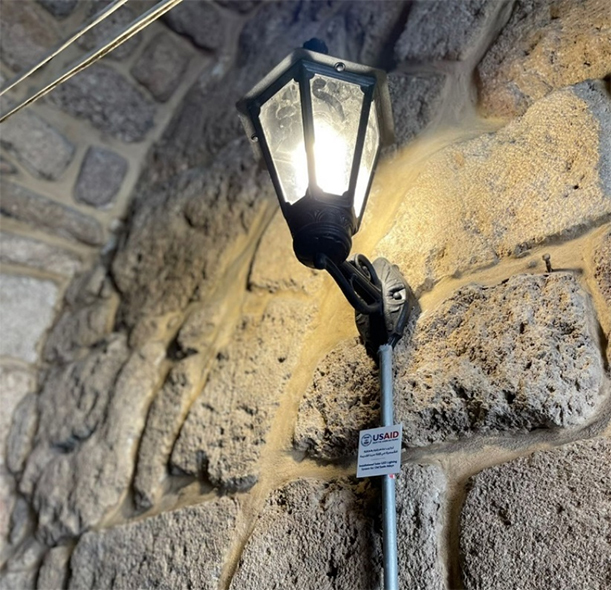
The CSP’s Solar Solutions to Counter the Collapse of Essential Services innovation has been recognized by the Society for International Development-US (SID-US) with the “Best in Show” award in the conference’s annual innovation competition, lauded by the society for “its innovative approach to solving the gap in delivery of critical public services through affordable, renewable energy.” The award marks the third year in a row that Chemonics won the top prize from the conference.
“In a collapsing economy further exacerbated by global issues like COVID-19 and war in Europe,” added Al-Ayoubi, “Solar Solutions is proving to be one of the most important innovations to counter the collapse of essential services in Lebanon.”
And the solar solutions have incredible potential for scale.
“I think it’s not just because Lebanon is experiencing this triple or quadruple crisis that makes using solar innovative,” added Rhett Gurian, the chief of party of CSP in Lebanon for Chemonics. “It’s about any place that has enough sunlight or land. We’re reaching a pivotal point in our civilization’s use of energy: the war in Ukraine and other factors show that we can no longer depend on nonrenewable resources. Lebanon is a proof of concept. This is one of the hardest places to make that work. There is no functioning government providing services to people. The convergence of the financial crisis and political gridlock has led to social instability in the form of road closures, strikes, and violence. It’s very hard to get anything done. But solar solutions are proving to be one innovative way to overcome these challenges. If solar can be used here — where there really are no other resources — it can really be used anywhere.”
Banner image: CSP installs solar panels in Old Saida to ensure power supply to the streetlights in the town’s main paths and entrances.





